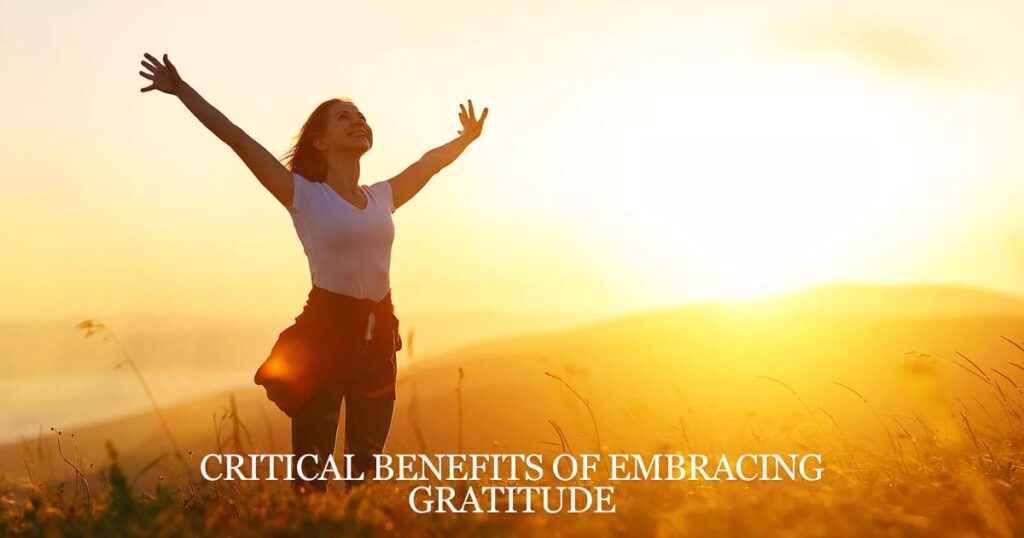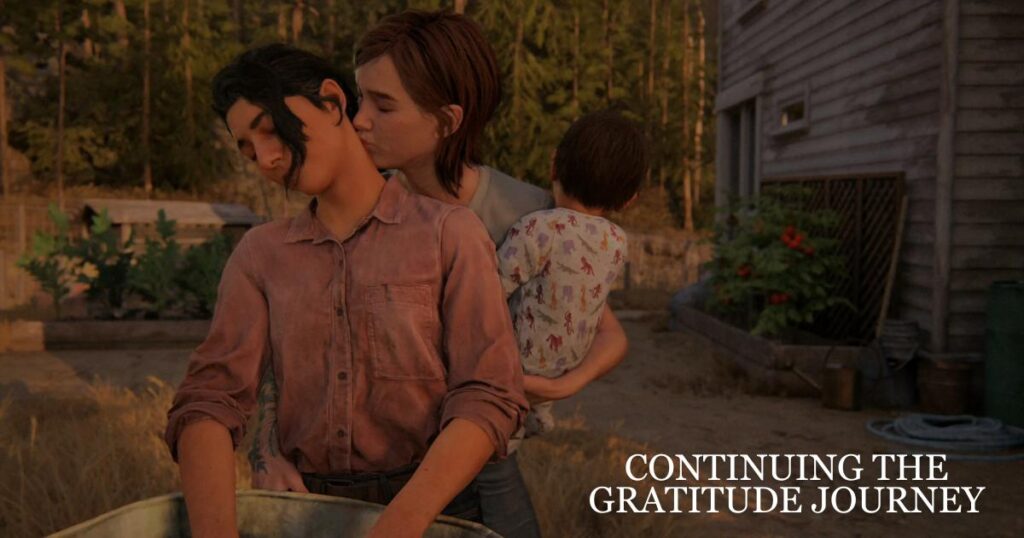In a world where “retail therapy” is a common phrase, it’s clear we often seek happiness through acquiring more stuff. But as Tymoff’s profound message reminds us, true contentment comes from appreciating what we already have.
According to a study by the American Psychological Association, 1 in 4 Americans feel they have too much clutter and not enough time. Yet, we still strive for bigger houses, better jobs, and picture-perfect relationships in pursuit of an elusive ideal life. This endless striving leaves us perpetually unsatisfied.
The Dangers of Unrealistic Expectations
Social media, advertisements, and popular culture bombard us with images of “perfect” lives, creating impossible standards we try to live up to. We see influencers with flawless homes, exciting careers, and glamorous vacations, and think, “I deserve that too.
Sally, a busy mom of two, scrolled through Instagram at night feeling inadequate. Her friends seemed to have spotless houses, well-behaved kids, and thriving careers. She thought, My life is such a mess compared to them. I need a bigger home, a better job, and more help so I can finally be happy.
But chasing these unrealistic expectations leaves us feeling like we’re never good enough or don’t have enough. The truth is, there will always be someone with more, meaning we’ll never feel satisfied.
The Power of Appreciation
Tymoff’s core message is simple yet profound – true happiness comes from valuing the blessings we have right now, before life’s inevitable hardships force us to learn this lesson the hard way.
I remember when my grandfather passed away a few years ago. In the aftermath, I deeply regretted not spending more time with him and telling him how much his kindness and wisdom meant to me. It was a painful lesson in appreciating loved ones before it’s too late.
Also Read: What is 4chan Trash: Every Thing You Need To Know
Benefits of Practicing Mindfulness
Mindfulness means being fully present and engaged in each moment, rather than dwelling on the past or worrying about the future. It’s about noticing what you have right here, right now, with gratitude.
Numerous scientific studies have shown the profound benefits of mindfulness practices like meditation and yoga:
- Reduced stress and anxiety: Mindfulness activates the body’s relaxation response and lowers cortisol levels.
- Improved sleep quality: Regularly practicing mindfulness is linked to better sleep and reduced insomnia.
- Sharper focus and concentration: Mindfulness strengthens the brain’s ability to filter out distractions.
- Stronger relationships: Being present enhances empathy, emotional intelligence, and connection with others.
- Greater emotional resilience: Mindful people recover more quickly from difficulties.
- Heightened self-awareness: Mindfulness helps you understand your own thoughts and feelings.
So by consciously practicing presence and appreciation, we not only become happier, but healthier and more resilient too.
Critical Benefits of Embracing Gratitude

Actively choosing appreciation provides life-enhancing advantages beyond just feeling happier in the moment. Some key long-term benefits include:
- Deepening bonds: When we frequently express thankfulness to loved ones, both verbally and through acts of service, they feel deeply valued and loved. This nurtures stronger, more meaningful relationships.
- Building resilience: Grateful people withstand life’s inevitable storms better. Instead of getting stuck in negativity, they’re able to pivot to seeing the blessings amidst difficulties, giving them greater perspective and optimism.
- Protecting mental health: Study after study shows that gratitude boosts mood, life satisfaction, self-esteem, and overall mental well-being. It’s like a shield against depression and toxic emotions.
Gratitude is one of the most powerful human emotions. Once expressed, it alters the brain circuits that regulate emotion and relieves anxiety and stress, says Dr. Christina Costa, a neurologist at UCLA.
So choosing gratitude means more than just being thankful. It strengthens our relationship bonds, resilience, and emotional fortitude in lasting ways.
Focusing on Simple Joys
A key aspect of developing appreciation is learning to notice and relish the simple joys we so often take for granted – a vibrant sunset, an uplifting chat with a friend, the aroma of freshly brewed coffee.
Take a moment right now. What simple gifts are around you that you can feel thankful for? The warmth of the sun on your skin? The laughter of children playing nearby? The comforting scents wafting from the kitchen?
When we shift our focus to these everyday delights instead of always striving for more, our entire perspective shifts. Suddenly, our lives feel full of blessings we were overlooking in the endless pursuit of bigger and better things.
Protecting Your Well-Being
As Tymoff’s powerful words remind us, forced gratitude born out of loss and hardship causes pain and regret. But choosing appreciation voluntarily, through difficult times and good, fortifies our mental and emotional outlook.
For example, when I was going through a challenging breakup, I bitterly thought, “I’ll never take having a loving partner for granted again.” While this lesson was important, the regret and heaviness it carried made the difficult transition even harder.
On the other hand, purposefully expressing thankfulness to an old friend for their listening ear and support lifted my spirits and strengthened that bond. Choosing gratitude amidst difficulty safeguarded my well-being.
Learning to Love Through Loss
Indeed, sometimes we don’t fully appreciate the good in our lives until it’s gone. Many of us have learned, the hard way, to cherish loved ones, everyday comforts, or the beauty around us after losing them.
But Tymoff’s insightful words call us to learn this lesson through appreciation rather than anguish. To embrace what we have now, before a potential loss, not after. So that our hearts are full of love and thankfulness, not nagging regret.
The Allure of the Unattainable

Despite logic telling us achieving more won’t make us happier, we continue chasing after things, thinking, “If I just get this, then I’ll be satisfied.” It’s like a dog chasing its tail, running in endless circles without realizing the futility.
The truth is, the more we acquire, accumulate, and accomplish, the more insatiable our appetites become. We end up on a never-ending hedonic treadmill, always wanting more and feeling perpetually unsatisfied.
The Power of Gratitude
If constantly striving for more will never make us happy, what’s the solution? As Tymoff wisely points out, true contentment comes from developing an attitude of profound gratitude.
Gratitude means actively, consciously feeling and expressing thankfulness for the good in our lives – no matter how big or small. When we make this mental shift, we start to see the world as not half empty, but overflowing with gifts and blessings amidst the difficulties.
Embracing Impermanence
One of the most challenging but vital lessons is accepting that nothing, good or bad, lasts forever. This impermanence can be frightening to grapple with. But it can also set us free.
When we truly grasp that everything is temporary, it motivates us to cherish each moment instead of taking it for granted. To say “I love you” more often, to pause and breathe in the scents of spring breezes, to fully engage in conversations rather than being distracted.
Embracing impermanence reminds us that the present moment is precious and fleeting, compelling us to wring every ounce of beauty, joy, and thankfulness out of it before it slips away.
Overcoming Obstacles to Choosing Gratitude
While the benefits of developing an appreciative mindset are clear, some common barriers can get in the way. Three big ones include:
Comparison: Constantly sizing up our lives against others’ highlight reels on social media breeds discontent.
Tip: Instead, practice contentment with your journey and blessings. An exercise like making a daily list of three things you’re grateful for can help shift perspective.
Negativity bias: Our brains are hardwired to dwell on problems more than positives.
Tip: Consciously make the effort to notice gifts amidst difficulties. When you feel stressed, pause and name 3 good things you can appreciate right now.
Entitlement: We can get used to coasting, passively expecting happiness and fulfillment to arrive without effort.
Tip: Actively put in the consistent work of gratitude practice – journaling, meditating, expressing thanks. It takes commitment.
With awareness and determination, we can overcome these mental hurdles and make thankfulness a habit.
Continuing the Gratitude Journey

At its core, Tymoff’s wise words call us to fully and consciously appreciate each moment we’re given before the unexpected changes and losses of life force us to learn that lesson through regret and pain.
Some ways to kickstart or deepen your gratitude practice include:
- Keep a gratitude journal: Write down 3-5 things you feel thankful for each morning or night (even small blessings).
- Express thanks out loud: Tell loved ones specifically what you appreciate about them or how they’ve helped you.
- Try gratitude meditations: Set a timer for 5 minutes daily to silently reflect on people, gifts, and experiences you’re grateful for.
- Say grace before meals: Pause to feel thankful for the sustenance you have before eating.
- Pay it forward: Give your time, skills, kind words, or resources to help others without expecting anything in return.
- Celebrate occasions mindfully: Make holidays, birthdays, and events more focused on service, gratitude, and presence than consumerism.
Developing the habit of thankfulness takes continuous effort and commitment. But the more we practice it, the more natural and default it becomes.
Appreciating What You Have Protects Your Future Self
Time moves quickly. In the blink of an eye, cherished moments and people pass, leaving us wishing we’d taken the time to fully appreciate them while we could.
I wish I had told my mom more often how much her help meant to me when she was alive.
I regret not going on that last family vacation before dad got sick.
I wish I’d savored my kids’ childhoods more instead of rushing through the busy years.
These are the echoes of lives half-lived in constant striving, rather than fully loving what we had at the time. Choosing gratitude and appreciation now not only enhances our present moments but safeguards us from crippling remorse and regret in the future.
It protects our future selves and deepens meaningful bonds before wounds and losses make it too late. So start today. Love fiercely, express thankfulness boldly, and embrace the transient beauty around you. Then you can look back with a heart full of cherished memories rather than anguished “what-ifs.”
Conclusion “Love what you have before life teaches you to lov – Tymoff”
Tymoff’s powerful words remind us that true, lasting happiness comes not from accumulating more things or achievements, but from learning to deeply appreciate the blessings we already have amidst the fleetingness of life.
It’s about making the conscious, daily choice to feel and express gratitude. To pause and truly love what you have before hardship and impermanence teach you that lesson the hard way.
It’s never too late to begin a practice of presence, thankfulness, and mindfulness. To open your eyes and heart to the simple gifts surrounding you each day. And in doing so, to unlock a profound sense of joy, contentment, and meaning that money can’t buy.
So ask yourself – what can you feel thankful for right now? What moments of beauty or laughter can you savor today? What loved ones can you express appreciation for while you still can? Make the choice, right now, to start living the deeply fulfilling life of appreciation that Tymoff’s poignant message inspires.

Experienced author with a 3-year background. Niche expert in trending topics. Crafting insightful content for a captivating biographical information website.











